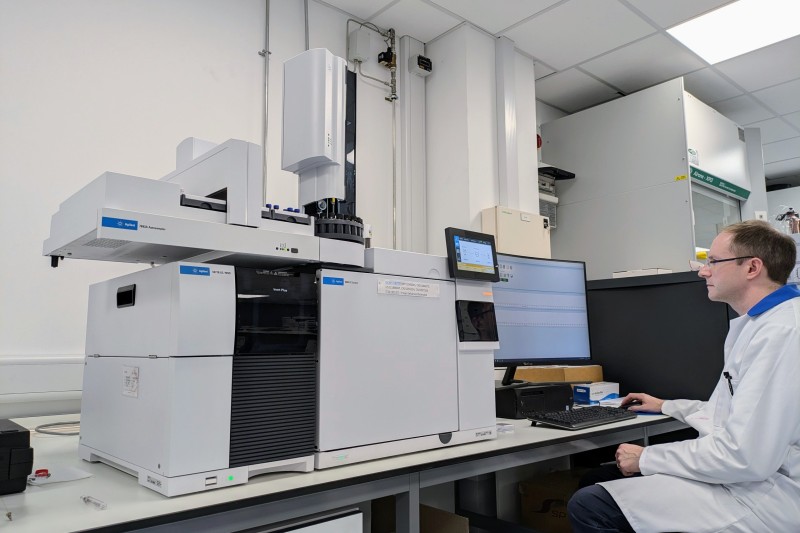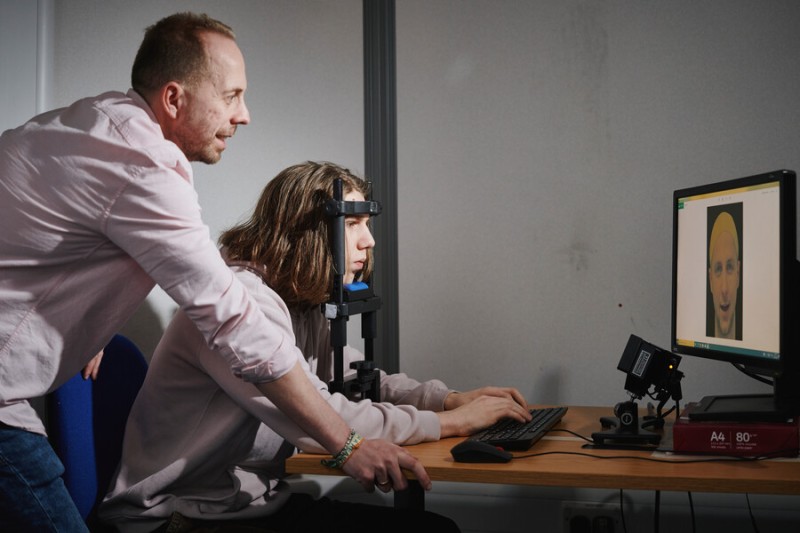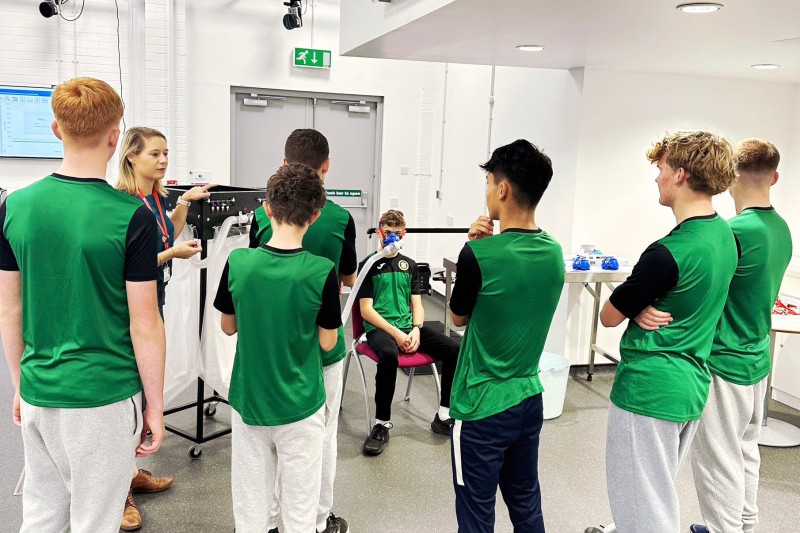A new clinical study will explore the potential of using a rapid portable sensor to detect skin cancers from chemicals released by the skin.
Skin cancer sites are known to release volatile organic compounds (VOCs) – organic chemicals which easily evaporate.
The study aims to identify the VOCs which are specific to skin cancers and develop a rapid, portable device which can detect them.
 Professor Richard Paul on one of the machines used to analyse VOCs
Professor Richard Paul on one of the machines used to analyse VOCsThe project is being undertaken by a team from the Department of Life and Environmental Sciences at Bournemouth University (BU) and the Oral and Maxillofacial Surgery Unit at University Hospitals Dorset (UHD).
Professor of Bioanalytical Chemistry at BU Richard Paul, who is leading the study, said: “People with suspected skin cancer usually present at their GP surgery, where a doctor is tasked with making a visual assessment before deciding whether to refer the patient for specialist assessment. Skin cancers can be difficult to diagnose, and as such the rates of unnecessary referrals for specialist assessment are high.
“Our research towards the development of a rapid sensor, specific to skin cancers and deployable in a point of care device is an exciting prospect, which would enable rapid detection of skin cancer in primary care, enhancing patient triage and improving patient outcomes.”
The three-year clinical study will take place at Poole Hospital and follows a pilot study which developed a custom extraction device to capture the VOCs released from skin cancer sites.
The trial developed a non-invasive approach for VOC collection from skin cancer patients which can be used during routine appointments and revealed the potential VOC biomarkers associated with skin cancers.
Professor Paul added: “Our latest funding will allow us to validate this approach over a major 3-year clinical study on skin cancer patients, and to undertake work to develop new portable skin cancer detection technology for use in primary care.
“Our vision is a user-friendly, rapid sensor, capable of detecting skin cancers which does not require specialist training to use. Such a device could be confidently used by a range of medical professionals in primary care, including nurses, and would enhance the detection of skin cancers.”
Co-investigators on the study include members of the Analytical Science Research Group (ASRG) at BU - Dr Ramin Boroujerdi and Dr Santanu Majumder - alongside Professor in Human Computer Interaction Huseyin Dogan and Professor Velupillai Ilankovan, Consultant maxillofacial/head and neck surgeon at UHD.
Professor Ilankovan said: “This research will change the cancer management pathway with early recognition and unnecessary referral to secondary care.”
The clinical study has been made possible by financial support from a range of donors, including trusts and foundations and individuals with an interest in skin cancer detection and treatment. We are continuing to fundraise for future phases of the project.



